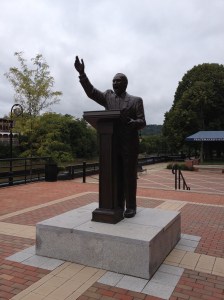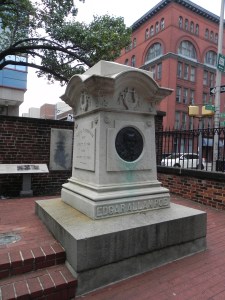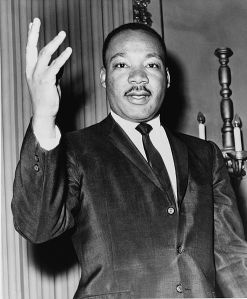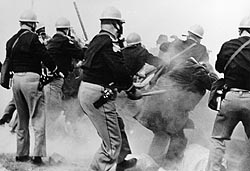Martin Luther King, Jr. attended Boston University School of Theology long before I did. We remember him today as a great leader, a man willing to die for what he believed in. And all these years later we’re still struggling to find some semblance of racial equality. We can’t seem to admit that race is a social construct and not a scientific category. Indeed, the only race is the human race. King saw that, and staked his life on it. Today we’re ruled by politicians who, when faced with the truth immediately shout “fake news!” “Liberal!” They may stop short of using some words not because they don’t want to, but because they could cost them at the polls come November. America is watching. I’m sitting here thinking how Martin Luther King died when I was just five. He’d started something righteous and just. And millions were out marching in the cold on Saturday to say we still believe in justice.
I didn’t pick Boston University School of Theology just because King was its most famous alum. The other day a guy noticed my BU stocking cap and asked if it was “Boston University.” This wasn’t an educated person, but I’m guessing that most school paraphernalia has to do with sports and the game was on in the background, so the question was logical. I told him it was Binghamton University, a school with which I also have an intimate connection, one step removed. He said, “Binghamton! I saw your cap and thought Baylor? No. Must be Boston.” But ironically he ended up with the right school for me, but the wrong school for what I was wearing. I did pick BU because I realized that strong academics are nothing without social justice. Of course, academia wanted nothing to do with that.
Recently I read how Republican resentment towards liberals has very solid roots in racism. Oh, they will deny it—their “fake news” trigger-finger is very itchy—but the whole package is tied up with anger that an African-American was elected president. Follow that up with an old, white racist. How will history look back on this insane era? I think we already know. While the privileged are trying to build their own legacies, I ponder an African-American preacher with clear vision as the one we remember today. I went to Boston University naive and full of hope. I heard a lot about King when I was there. I knew something of dreams and how costly they could be. Today I sit here and cuddle the epithet “liberal” and think how it’s become a swear word for some, while its real meaning of “justice” continues to go unheeded.





